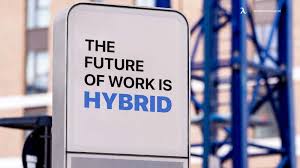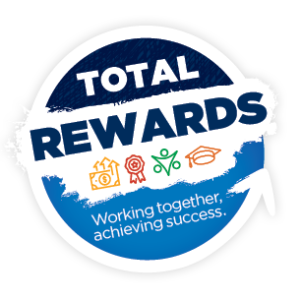By Tracy Emmerich and Tracy Long
Finding and retaining top talent is a core strategy of all businesses. Without a top-notch team of people dedicated to delivering on the promises of the organization, the most well-conceived business plan is not sustainable. Total rewards are key to ensure you are rewarding and recognizing your talented team. At Leap Solutions, we support our clients in the development and implementation of their total rewards plan and systems. As you read the newsletter, consider how you recruit and retain your team, what is working, and what needs to be strengthened. Finally, consider what your best would look like when you have all the top talent you need delivering on your promises.
In this issue of our newsletter:
- Recruitment and Retention
- Total Rewards Defined
- Total Rewards Strategy
- The Changing Workforce
- Pay Equity
- Compensation Analysis

Recruitment and Retention
The signs are everywhere – HELP WANTED… Now Hiring!…Hiring Bonus!
Labor shortages caused by instability in sectors like leisure and hospitality are compelling people to seek different career opportunities. Parents (mainly women) laid off and caring for their children have either not returned to the job market or are finding alternatives that provide a better work/life balance. And there’s the trending concern about the “great resignation,” predicted to create a Turnover Tsunami (HR Magazine, Summer 2021, Society for Human Resources Management) of employees who wanted to protect their income during COVID and are now burned out, dissatisfied with their employers’ return-to-office policies, and/or are just looking for better opportunities.
Employers are struggling to find, motivate and retain top talent. So, what is the key to recruiting and retaining employees? Assessment of your recruitment and retention issues — effective onboarding, meaningful work and relationships, and well-trained supervisors — are musts, and as is evaluating your organization’s total rewards strategy.

Total Rewards Defined
Total rewards are a combination of direct and indirect compensation.
Direct compensation includes base wages of hourly pay, salary, or piece rate; differential pay (for example shift pay); commissions; bonuses; and incentive pay.
Indirect compensation includes health and welfare benefits, medical, dental, vision, short- and long-term disability; retirement and other long-term benefits like 401(K) match, SEP IRAs contributions, HSA contributions, profit sharing, and stock options; paid leave such as vacation, PTO, sick, holidays, and bereavement; and perquisites (perks) like employee discounts, training and development opportunities, social or gym memberships, childcare assistance, pet insurance, recognition programs, flex-work, casual Friday, and more.

Total Rewards Strategy
Developing a total rewards strategy requires knowledge of employee motivations and desires. For example, twenty-nine percent of employees say that their mental/emotional health has deteriorated as a result of the pandemic (Willis Towers Watson Survey 2020 Global Benefits Attitudes Survey). This is a significant number that can even be higher for essential workers and not something that many have paid attention to in the past.
Additionally, your strategy needs to be in alignment with the company’s goals. What is your value proposition? Are you the low-cost leader or are you pioneering innovative products or services? In what phase of the life cycle is your organization? Are you a start-up that places value on basic benefits and wages, but emphasizes high incentives, or are you a mature business that values expanded benefits including perks and bonuses? Your answers help you decide to lead, match, or lag the market in pay and benefits.
The Changing Workforce
Selecting the ‘rewards’ of total rewards should be reflective of:
- your company’s values
- the nature of work (in office or work from home)
- employees’ changing expectations regarding pay transparency, stability, well-being, and flexibility
- employee demographics and the employee behaviors that you are trying to encourage
Don’t assume one size fits all. Rewards should span the employee life cycle, from accommodating single employees just entering the job market, to mid-career with families, to those nearing retirement.
Total rewards are not just for full-time employees anymore. Employers embracing part-time employees will find a larger pool of potential employees who can be more committed than their full-time counterparts.

Pay Equity
Many companies are realizing that pay equity issues are built into existing systems and require concerted efforts to eliminate inequities. California, Oregon, and Washington are among several states that have banned employers from asking job applicants about their salary history; questions which can reinforce and perpetuate pay inequality. Inequities can be identified through annual reviews of wages.
Work from home has created its own pay equity issues. Employers have primarily based pay on the location of the employee. For example, if you have lived in a lower cost of living area, you have typically been paid a lower wage based on that area, and vice versa. Employers allowing their workforce to work from anywhere must decide pay based on location (where the employee lives or where their home office is located), pay based on the type of position and level of qualification, or a combination of the two. Complicating the location issue is nomadic employees who may work in multiple locations throughout the year while companies allow employees to work remotely.

Compensation Analysis
A good rewards strategy ensures that you have relevant, up-to-date market information to make compensation decisions. To remain competitive, semi-annual or quarterly reviews should now supplement annual wage reviews. Hard-to-fill positions or Hot Jobs may require more frequent analysis. Even if your overall strategy is to match the market, you may want a separate strategy to lead the market for certain positions that require you to be more competitive.
Leap Solutions Group Can Help
Developing a total rewards strategy is a thoughtful, deep dive process that requires understanding your business, your reward philosophy, employee needs (now and in the future), and the changing environment. Recruiting and retaining talent remain a challenge for the foreseeable future. The cost is too high not to have a well-thought-out strategy that positions you as an employer of choice. Leap Solutions Group is here to help you evaluate and develop your total rewards philosophy, assess your current compensation and benefit offerings, and create solutions for a thriving workforce.
Give us a call so you can take that help wanted sign out of your window!

***
Leap Solutions is a diverse group of highly skilled management, organizational development, and human resources, and executive search and recruitment professionals who have spent decades doing what we feel passionate about helping you feel passionate about what you do. Our HR specialists can help you get a handle on the ever-changing COVID-19 guidelines, programs, and legislation that may impact you and your employees. We are available to work with you to develop practical solutions and smart planning decisions for your organization’s immediate, near, and long-term needs.
To print this article, click here

![]()

